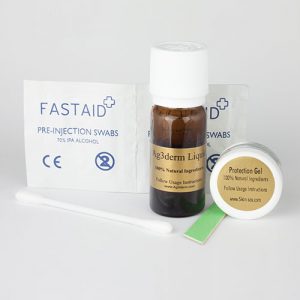Solar Keratosis is a skin disorder caused by excessive exposure to the sun. Sunlight is essential for our body to form vitamin D, however some of us have less natural protection from the sun in the form of melanin which gives us light and dark skin color. Our skin also produces keratin. Keratin is good for the outer layer of the skin as it is a structural component. However, sun damaged skin can cause it to be over produced, causing precancerous lesions. Keratosis is a skin disorder known to mainly affect people above the age of 40 with fair skin.
Solar Keratosis, also called actinic keratosis, usually appears later in life but only in some cases.
Solar Keratoses are said to be caused by genetics meaning that it is hereditary and in such a case, nothing can be done to prevent the skin problem. Other causes that are mostly stated are over exposure to the sun and a deficiency of vitamin A in the diet. Most medical studies show that vitamin A deficiency does not necessarily cause keratoses.
Solar keratosis is characterized by the appearance of lesions on the skin. The lesions are precancerous meaning that they can lead to cancer. These vary in size and color and shape too. Solar keratosis lesions range from pink to shades of brown and can be as big as an inch and as small as the tip of a pin. These lesions are also itchy and irritating.
There are several treatments for solar keratosis. Aldara is a good treatment for this kind of keratosis and it simply works by making the immune destroy precancerous by activating them. Cryosurgery is the use of liquid nitrogen on lesions and left to freeze off. This method is very effective and has no pain though it can be minimal in some cases. Chemical peeling is also a treatment for solar keratosis. Chemical solutions are applied on the skin and with time the lesions will blister and after peeling, and new skin grows back.
Solar keratosis needs your attention and you need to see your dermatologist to shield you from severe cancer at early stages. This kind of keratosis can be treated so do not worry, but look after yourself and visit your doctor to arrange solar keratosis treatment.

 Further Reading:
Further Reading:
